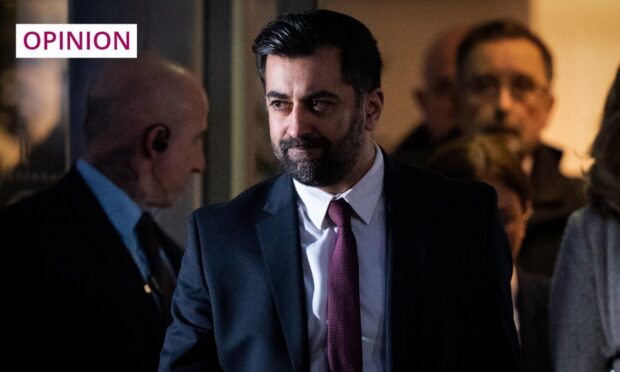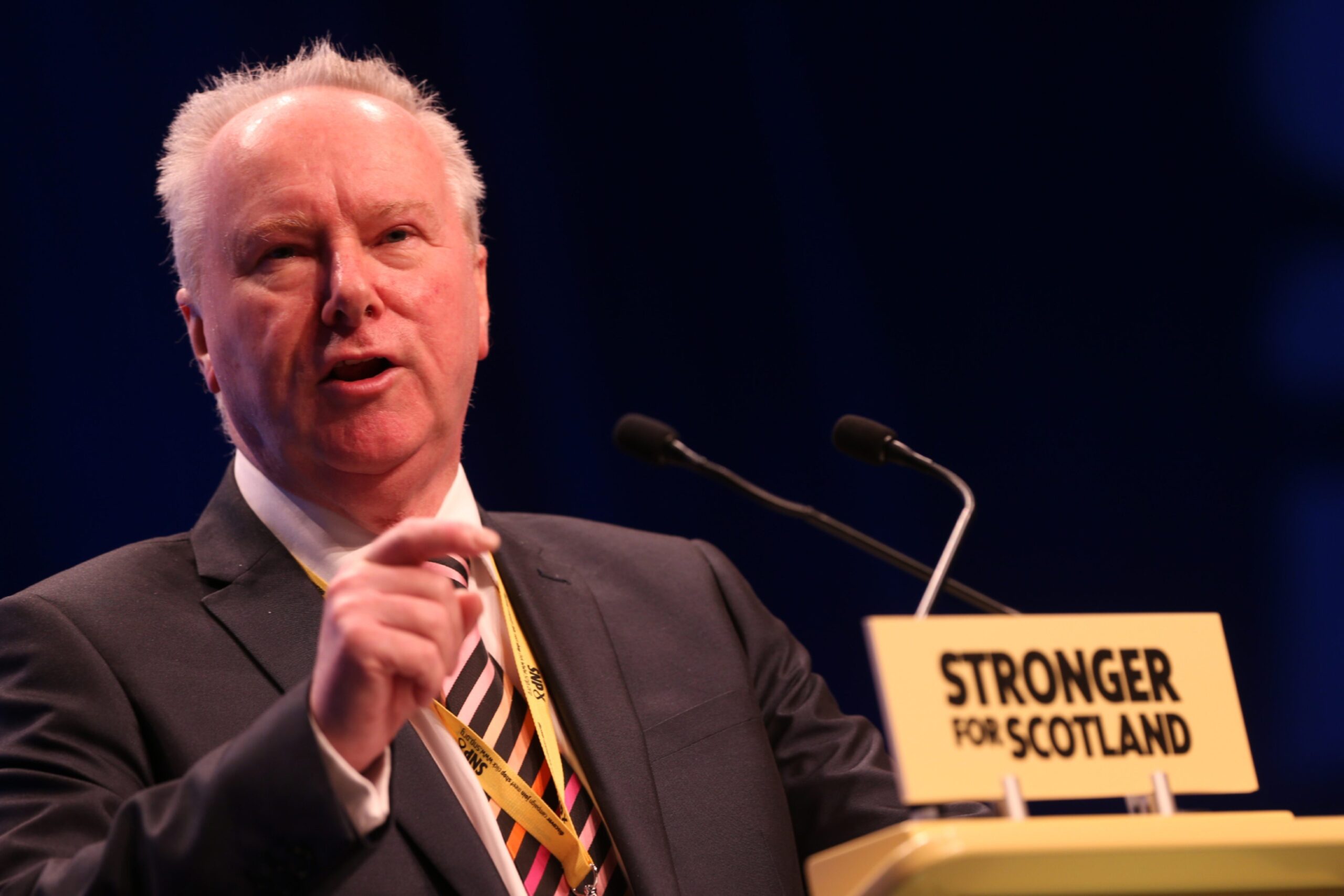What a state our politics is in.
Nicola called Boris “a fucking clown”. Humza called a Labour opponent a “twat” and an “arsehole”. He and his clinical adviser swapped messages during lockdown admitting they were “winging it”.
Jamie Dawson, the quietly devastating QC at the Covid inquiry, is polishing his rhetorical knives ahead of Nicola Sturgeon’s appearance on Wednesday. Will her successor as first minister last long beyond what looks like being a humiliating general election result?
At Westminster, the debate rages around who should replace Rishi – Kemi, Penny or Cleverly? Could the Tory right somehow find a way to promote the egregious, unelected Lord Frost to the helm of their party?
Grim and grimmer. Both the UK and Scotland feel rudderless, adrift in a stormy sea of domestic failure, future uncertainty and international threat. We appear to be governed by the mediocre and the self-interested, more focused on protecting their own hides than the country. Navels are being closely examined.
Does all this worry you? It worries me deeply. Not for four decades has our polity been in such a mess. In Scotland, our economy is barely growing, our school system is in stark decline, we have a serious drug problem, and our much-celebrated NHS is toppling from its pedestal. This is no time for decadence, and yet decadence is what we have.
Some still hope and work for better
Like the medics and teachers who turn up every day, regardless, like a dwindling band of miners at the rock of sanity, some of us continue to hope and work for better.
Reform Scotland, the think tank of which I am director, relentlessly chips away with its spindly pickaxe of reason. Late last year, we revealed that, post-lockdown, nearly one in three children are missing an average of one day of school per fortnight, and one in eight a day a week. We discovered sharply rising waiting lists and times for orthopaedic procedures in Scotland’s hospitals, with well over 10,000 people on the waiting list for a hip operation, up from just over 3,000 in 2019.
We have modestly proposed solutions to Scotland’s demographic crisis and its immigration difficulties. We continue to suggest ways in which the broken Curriculum for Excellence might be rethought to the benefit of the nation’s children and the generations still to come. Other like-minded folk across the policy community, who have competing policy preferences but who are every bit as frustrated, dig alongside us.
Working with the British Medical Association, we have launched NHS2048, a programme that is exploring how the health service might be reformed and improved, so that by the time it reaches its centenary, it is in considerably better shape that at present.
A plan for reforming the NHS
If not all the politicians are paying attention – Michael Matheson, Scotland’s health secretary and noted football fan, is still trying to save his own job – at least some are.
Yesterday, we published a long, detailed and thoughtful range of proposals on NHS reform by former SNP health secretary, Alex Neil. Neil is a clever man and a powerful and often surprising thinker. His reflections on what he learned during his time in office – good and bad – are always worth listening to.
The most urgent issue for NHS Scotland is, he warns, “to deal with the dire shortage of medical staff”, and this, rather than the size of his iPad bill, is “what should keep the Cabinet Secretary for NHS Recovery, Health, and Social Care up at night”.
The Scottish Government has committed to expanding the NHS workforce by 1% over the next five years but, says Neil, this target is “totally inadequate and needs to be urgently revised”.
He explains: “Given the number of existing staff shortages, the wholly inadequate rates of recruitment and retention currently being experienced by the Scottish NHS, the number of staff who are due to retire within the next five years, the numbers taking early retirement from the NHS, staff turnover levels involving the loss of existing staff to various destinations, the projected increase in population, the increasingly older age structure of the Scottish population plus the additional demands which the NHS will face in the next five years it is very difficult to see how [the planned] increase in the total workforce will come anywhere near meeting the numbers needed.”
Further, there is now a global market for staff, drawing Scottish medics towards better-paid work in Australia and America. The NHS can no longer rely on immigrant Indian medics, due to that country’s rising middle-class population demanding high-quality healthcare of their own.
‘Do more – and do it now’
Neil proposes that plans for a centralised National Care Service should be “withdrawn with immediate effect”, the unwieldy number of health boards streamlined, and NHS pay rates made internationally competitive.
“My message to the Scottish Government is that if it is serious about addressing the crisis in the NHS in Scotland it needs to do much more than it is currently doing and it needs to do so now,” he says.
We need much, much more of this kind of thinking. Like Humza Yousaf and Jason Leitch, we’re all winging it in one way or another – it has ever been thus. But what matters is the flight path, and that we maintain focus on arriving safely at our chosen destination. Why, then, do we insist on flying in circles?
Chris Deerin is a leading journalist and commentator who heads independent, non-party think tank, Reform Scotland



Conversation